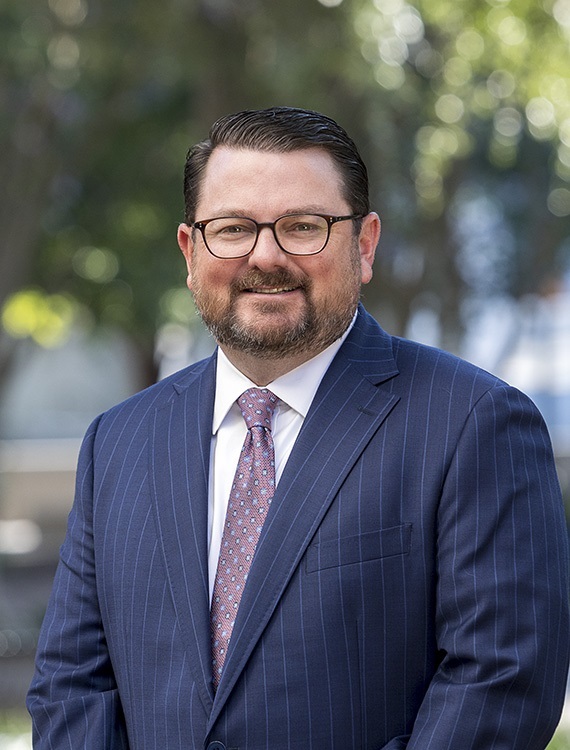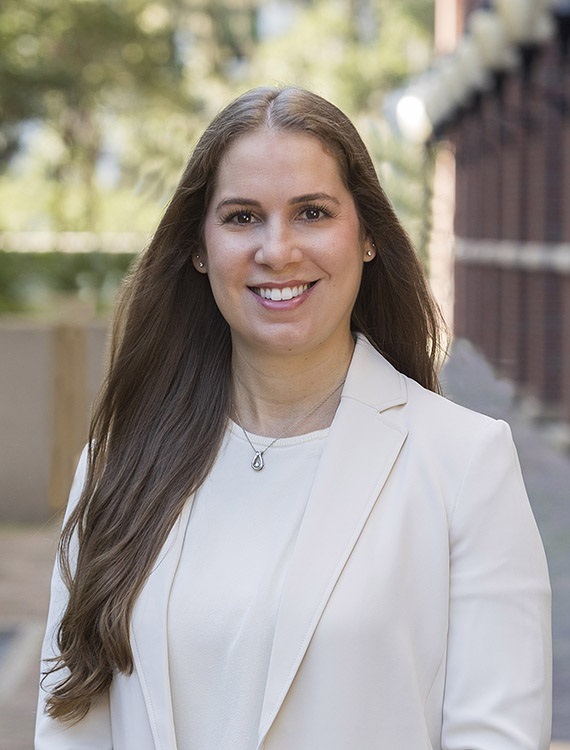Health care stakes high in Florida
State has vested interest in ongoing D.C. debate
By MAUREEN GROPPE and EUN KYUNG KIM
Gannett Washington Bureau
WASHINGTON — Congress is debating how to rein in costs while providing insurance coverage for about 46 million Americans who don’t have it.
Health care costs have more than tripled since 1990, and health spending could equal a quarter of the economy by 2025. Congressional lawmakers and President Barack Obama want to extend coverage to everyone.
That could mean requiring people to have insurance with help from subsidies, and making employers help pay for it. The government also could set up a public health care plan that would offer cheaper coverage than do commercial insurers.
What lawmakers do will affect Florida’s consumers, taxpayers, employers and health care providers.
What follows is a look at the debate and how things stand in Florida:
What’s on the table
The ideas the Obama administration and the Democratic Congress are considering would build on the public-private system. Options being discussed include:
• Requiring most people to have insurance and most employers to help pay for it.
• Expanding government programs such as Medicaid.
• Offering a public-run insurance plan that would compete with private plans.
• Creating “insurance cooperatives” run by consumers.
• Creating a health insurance exchange to expand insurance options for businesses and individuals.
Ideas to pay for extended coverage
• Limiting the tax exemption for employer-provided health insurance benefits.
• Limiting tax deductions for high-income taxpayers.
• Increasing the federal tax on alcohol.
• Taxing soda and other sweetened beverages.
• Eliminating the business-expense deduction drug makers can take for advertising their products.
Savings could come from cutting provider payments
• Cuts in subsidies to private insurers that offer Medicare Advantage plans.
• Cuts in payments to drug companies for Medicare and Medicaid drugs.
• Cuts in subsidies to hospitals for treating the uninsured.
• Limiting the growth of Medicare fee-for-service payments.
• Tying payments to outcomes and quality of care.
Florida by the numbers
• The uninsured: Florida has a higher uninsured rate than average and ranks high among states and the District of Columbia for the number of people who couldn’t see a doctor in the past year because of cost.
• There are 3.7 million Floridians without health insurance.
• Fifty-three percent of Floridians ages 19-64 who are living in poverty do not have health insurance, compared with 45 percent nationally.
• Percentage of Florida residents uninsured, 2007: 20.7 percent.
• Florida is third among all states and the District of Columbia for its uninsured rate.
• Employer-provided health insurance: Just fewer than half, 47.1 percent, of all Floridians get insurance through an employer. Premiums for employer-provided coverage in Florida were among the most expensive in the country in 2006. Only Maine had higher-costing premiums, per average family, for an employer-based health plan. Employees aren’t taxed on health coverage they get from an employer, which is the nation’s single largest tax benefit. That could change. Lawmakers are considering taxing health benefits above a certain value, or taxing them for people making more than a certain income. The revenue raised would help pay for expanding coverage to all.
• Florida ranked 46th among all states and the District of Columbia in the percentage of residents with employer-provided insurance.
• Increasing cost: The cost of employer-provided family coverage has increased 72 percent in Florida since 2000. That’s more than 31⁄2 times the percentage growth in median earnings in Florida during the same period.
• Average cost of premiums paid by the employee for employer-provided family coverage in Florida, 2007: $3,821.
• Average cost of premiums paid by the employee for employer-provided family coverage in Florida, 2000: $1,969.
• Overall health care expenditures: Florida ranks 19th among states and the District of Columbia in per-capita spending on health care services. The state spends more of its health care dollars than average on doctors, drugs, medical equipment and home health care; it spends less on hospital care, nursing homes and dental services.
• Per-capita spending on health care services in Florida, 2004: $5,483
• Drug prescriptions filled in Florida in 2007: 12.6 per person
• Ranking: Florida is 17th among states and the District of Columbia in drug prescriptions filled per person.
• Average hospital cost per inpatient day in Florida, 2007: $1,652
• Florida ranks 26th among states and the District of Columbia in average hospital cost per inpatient day.
Cost effectiveness
The Obama administration often cites Dartmouth College research that uses Medicare spending data to show areas that spend more on health care don’t get better results.
Sicker patients and a region’s higher cost of living only partly account for higher spending, the researchers say. The biggest factor, they say, is overtreatment — providing unnecessary services that increase reimbursements.
Congress could address this by cutting or capping Medicare payments to areas with highest per-beneficiary spending.
• Florida ranks higher than most states in per-beneficiary Medicare spending.
• Medicare spending per beneficiary nationwide, 2006: $8,304
• Medicare spending per beneficiary in Florida, 2006: $9,379
Per hospital service area (Health Savings Account):
Medicare spending per beneficiary in the Fort Myers HSA, 2006: $8,366.
Medicare spending per beneficiary in the Cape Coral HSA, 2006: $7,575.
Medicare spending per beneficiary in the Naples HSA, 2006: $8,125.
The debate status
Democratic House leaders released a $1 trillion legislative proposal Tuesday that calls for a surtax on people with higher incomes and a government-run health insurance option. They successfully cleared the bill out of two House committees — Education and Labor and Ways and Means. The measure awaits a vote from the House Energy and Commerce Committee.
In the Senate, the Health, Education, Labor and Pensions Committee approved health reform legislation Wednesday but the Senate Finance Committee has yet to address how to pay the $615 billion, 10-year cost.
Watching Florida lawmakers
Most Republicans are expected to oppose the Democrats’ proposals, particularly the idea of creating a government-run insurance option that would compete with private plans. Florida Democrats, including several moderates, also may be wary of a public plan because of costs.
Sens. Mel Martinez and Bill Nelson:
Martinez, R-Orlando, and Nelson, D-Orlando, are waiting to see details of the final bill.
“Having been insurance commissioner in Florida in the mid-1990s, Nelson doesn’t need to be convinced that insurers wield too much clout over health care,” said Nelson’s spokesman, Bryan Gulley. “He wants to see what the White House will accept in the form of a public (government-run) option. And he isn’t satisfied with raising people’s taxes to pay for health care reforms, while we still haven’t even made the drug makers pay their fair share in the form of price discounts to Medicare.”
Rep. Connie Mack, R-Fort Myers
“Congressman Mack wants to look at market-based ideas and solutions to make health care more affordable and accessible to all Americans,” Mack’s spokeswoman, Stephanie DuBois, said. “He supports allowing small businesses to pool together to purchase health insurance (small-business health plans); allowing individuals to have greater control over their health spending through health savings accounts, which bring more competition to the insurance market; reducing frivolous medical malpractice lawsuits by placing limits on punitive damages and ensuring the speedy resolution of claims; investing in community health centers, which provide preventative and primary care to uninsured or low-income individuals; and creating tax incentives — not penalties — for individuals who have health insurance.”
To send an e-mail go to mack.house.gov/ or call 573-5837 or 202-225-2536.
Rep. Allen Boyd, D-Monticello
Boyd is a member of the fiscally conservative Democratic Blue Dog Coalition, which says a public plan must be limited and only used as a backup if private insurers don’t lower costs.
“I will be working for a health care bill that reduces costs, increases access to coverage, and improves health care in rural areas like North Florida,” Boyd said. “The health reform plan also must ensure patient choice and allow those who are happy with their present coverage to keep it. Additionally, the health care bill must be fully paid for and not add to the deficit.”
Rep. Jeff Miller, R-Chumuckla
Miller does not support the House bill because of its cost.
“We are talking $1.5 trillion in debt we are passing on to our kids and grandkids,” he said.
A better reform bill would expand health savings accounts, “provide incentives for offering health insurance rather than disincentives for not offering it, and some real medical malpractice reform,” Miller said. “Most importantly, I think a reform bill should not tamper with the patient-doctor relationship.”
Rep. Suzanne Kosmas, D-New Smyrna Beach
“I am working to improve health care services for all Central Floridians by expanding access to health care for children through SCHIP, making prescriptions more affordable for our seniors, and streamlining and improving our veterans’ health care system,” Kosmas said. “As efforts on health care reform continue to take shape, I want to make sure we take steps to significantly lower health care costs for consumers, allow individuals to continue to choose their own plans and doctors, and protect small businesses from having to shoulder an unfair burden. At the same time, any health care reform effort must be paid for. I am hopeful that a complete health care reform bill will accomplish these goals, but I am not sure that we are there yet.”
Rep. Bill Posey, R-Rockledge
“We have 40,000 seniors in our district that are on Medicare Advantage,” Posey’s spokesman, George Cecala, said. “We have concerns about what this (House) bill would do to their coverage, because of cuts to Medicare. Some of the ideas we would like to see in this debate include association health care plans for small businesses. We also like the idea of local-run health community plans. Most importantly, we need to be talking to individuals about what they like and don’t about their current health care plans. We’re still waiting to see what kind of role individuals will be playing. The (House) health bill just offers a Washington kind of solution.”
Why it matters
• Health care spending is taking up an increasing share of state and federal budgets, crowding out spending for other items and contributing to the national deficit.
• Increasing costs are holding down wages as employers have to pay more to provide health care coverage. Some businesses say rising costs make it harder to compete with foreign companies.
• Costs for employees also have increased, taking up a greater share of their pre-tax income.
• Whatever Congress does to pay for health care reform could hit consumers. Some may be taxed on the value of their employer-provided benefits. Higher-income taxpayers may face limits on what deductions they can take for such items as mortgages and charitable contributions. Congress could decide to increase the tax on alcohol or start taxing soda and other sweetened beverages.
• Health care reform also could change how people get their coverage. Some people who now get coverage through their employers or through government plans could get it elsewhere.
• Critics say many of the steps lawmakers are considering would do more harm than good by increasing costs and decreasing quality of care for many consumers.
— Sources: Kaiser Family Foundation, Dartmouth Atlas of Health Care, Families USA, the Center for Responsive Politics, Gannett research.












